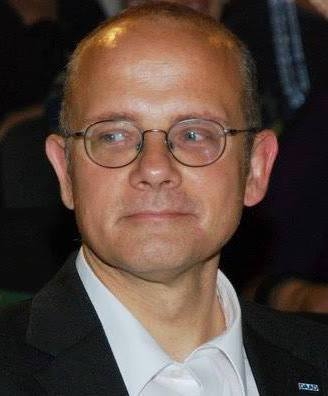I agree with Tsygankov that the propaganda war between Russia and the West reflects a real conflict of material great power interests, although many of the foot soldiers in this war are no doubt perfectly sincere in their concern for human rights, democracy, and so forth. But I would like to clarify what I see as the essential nature of the great power conflict.
Yeltsin enjoyed the full support and indulgence of Western ruling circles not because he was such a great democrat but because he obeyed the dictates of the IMF, allowed Western "advisers" to take control of domestic economic policy, and kept Russia open to Western capital as an export market and field for investment. When keeping Russia on this course seemed to require firm action, they encouraged Yeltsin to stage a coup and shoot up his own parliament. So much for democracy!
At this time it appeared that Russia was going to be absorbed into the brave new world of capitalist globalization as one local administration among many others at the beck and call of supra-national Western capital. In this context it was possible to indulge Russian pretensions to a sphere of influence in the post-Soviet space. After all, what difference did it make if all the post-Soviet countries were to be open to the "globalizers" in any case?
Putin has, in essence, withdrawn Russia from globalization and established national capitalism, based on an alliance between the state and "patriotic" oligarchs, as master in its own house. Conditions have been created for Russian firms to compete on the home market and the role of foreign capital in key fields of investment has been drastically curtailed.
Looking to the future, it must be borne in mind that the US is quite incapable of sustaining the global role it has assigned to itself. For some decades the US has been a declining power in relative terms. This is a long-term trend. The contrary impression caused by the collapse of the Soviet Union was largely an illusion, because the decline of the US has little to do with whatever happens in Russia: it is a function of the rise of Europe, Japan, China, India, etc.
The US decline is now accelerating. It could have been spread out over a longer period, but Bush in his wisdom decided to act in such a way as to accelerate it. The dollar is rapidly losing its position as the world's trading and reserve currency. Together with the massive and still growing national debt, this is right now triggering a recession on a scale unseen in the postwar era. Nor is it only a matter of a bankrupt economy. The long-neglected domestic infrastructure (bridges, etc.) will be undergoing progressive collapse. The wars in Iraq and Afghanistan have already exhausted and demoralized most of the army, and if Iran too is invaded that is sure to finish the job.
So however self-deluded some US politicians may be, they will have no choice in the matter. They will be forced by events to abandon the dream of globalization and world power and pull back from all areas of the world except those they regard as most vital (which does not include Russia or the former USSR) -- and perhaps even from those. "Russophobia" will no longer be relevant. They will have many much more pressing things to worry about than Russia (actually they already do).
So in the unlikely event that the Russian rulers and those who advise them were to ask for my advice, I would say this. Stay calm. Play for time. If together with China you can deter Bush from attacking Iran in the next few months, many people throughout the world will be greatly beholden to you. By this time next year you may well be facing a very different US -- much chastened, much less cocky, much more inward-looking (a very suitable orientation in the circumstances). It is high time to start giving serious thought to what the "post-American" world will be like and how we are going to cope with its problems.
Dr. Stephen Shenfield is author of, among other books, Russian Fascism (M.E. Sharpe 2001), and editor of the "Research & Analytical Supplement" to Johnson's Russia List.
[This comment was first circulated via Johnson's Russia List 2008-#70 on April 7th, 2008.]




